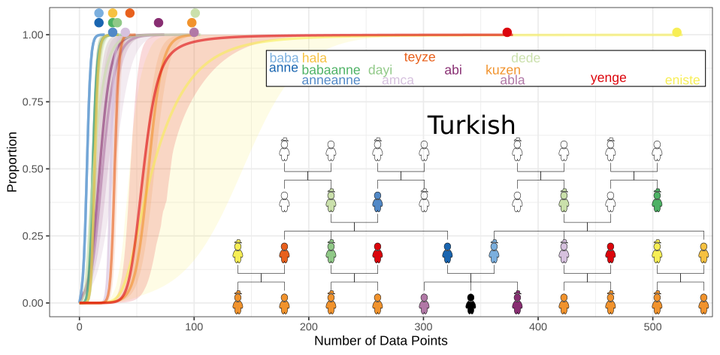
Abstract
We examine the conceptual development of kinship through the lens of program induction. We present a computational model for the acquisition of kinship term concepts, resulting in the first computational model of kinship learning which is closely tied to developmental phenomena. We demonstrate that our model can learn several kinship systems of varying complexity using cross-linguistic data from English, Pukapuka, Turkish and Yanomamö. More importantly, the behavioral patterns observed in children learning kinship terms, under-extension and over-generalization, fall out naturally from our learning model. We then conducted interviews to simulate realistic learning environments and demonstrate that the characteristic-to-defining shift is a consequence of our learning model in naturalistic contexts containing abstract and concrete features. We use model simulations to understand the influence of logical simplicity and children’s learning environment on the order of acquisition of kinship terms, providing novel predictions for the learning trajectories of these words. We conclude with a discussion of how this model framework generalizes beyond kinship terms, as well as a discussion of its limitations.